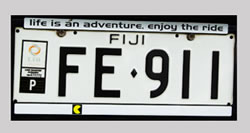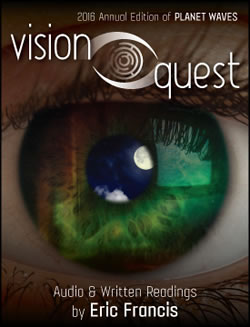Today, I am doing double-duty: writing a column and reviewing a film. This is something I rarely do here at Fe 9-11. I try to keep popular culture in its place, since most expressions of popular culture — especially film — exist to present a genre; or, in more plain terms, a product.

But since returning home from watching the new film Spotlight, I have to comment.
For those who haven’t seen the movie, the film is based on the true story of the Boston Globe‘s investigative journalism column, called “Spotlight,” which researches and exposes stories of crime and local corruption for the benefit of public interest. From 2001-02, at the request of the Globe‘s new editor Marty Baron, the Spotlight team took on the story of a pedophile priest in a local parish. But in the hands of an investigative journalism team used to digging deep, the story did not begin and end with the culpability of one priest, but of several — and over decades.
As their research advanced, everyone from victims and their lawyers to Archdiocese Cardinal Bernard Law were interviewed. First acting instinctively, then on fact, the Spotlight team discover and expose the size and scope of the cover-up of priests’ abuse of children. It is massive.
Lawyers were hired so often to negotiate victim’s hush money that it became a cottage industry. The Catholic Church and its leaders were highly respected members of Boston’s elite society and employed these connections to protect their priests from the police, the legal system and the press.
These realities kept hitting the team over the head incessantly like a foam rubber bat — registering only by repetition. But that repetition was not comic. It was sickening. Prior to Spotlight’s coverage, story after story of priests’ sexual abuse of minors were put out to journalistic pasture and left to die. Even the Globe had to admit it had published a story on a pedophile priest a decade before that ended up shunting the topic to the back pages.
We know how this story ends in real life. In January of 2002, the Globe‘s “Spotlight” column went on to publish the expose that would ultimately place Cardinal Law and the Catholic Archdiocese of Boston at the center of the cover-up, forcing his resignation later that year. The Globe went on to win a Pulitzer Prize for this coverage.
Like many who have seen the film and reviewed it, I felt a longing bordering on nostalgia for that level of journalistic investigation, the type that sees the tail of the monster and bravely feels its way through the dark to find its head and kill it. The Woodward-Bernstein team did it with Watergate, and the Spotlight team with the Catholic Church. Given the state of our world right now we need this type of journalism, period. But not only by the pros at the Globe or the Washington Post.
We are in a phase of history where the answers to our economic, environmental and social problems center on the unequal distribution of wealth. This has been going on for longer than this new century. Because people are making money at such grander economic and technological scales nowadays, the problem is much larger.
Those of us who aren’t as fortunate are feeling it more. The once-vibrant American middle class has shrunk. The discontent is more aggressive. The response to contain it is both divisive and oppressive. These are the symptoms of the world in an uproar, in this country and elsewhere. Yet the crime at the upper echelon that’s causing it still continues.
Through the lens of my experience of watching government at work from within the belly of the beast, I would feel my way through the political thought going on behind the story. Sometimes there is little of it. Other times, the thought behind the deeds seems so transparent and predictable that we already know the answer.
Even though I will never be at the caliber of Washington Post‘s or the Globe‘s investigative journalism, I try to give our readers good information. Watching Spotlight made me feel happy and proud of what I do here.
The moral of Spotlight‘s story is not to award or congratulate the Globe‘s reporters who unearthed the truth. It was the decades-long effort from the victims to bring this story to light, telling their stories often enough to bring it to the Globe‘s attention, giving them room to finally crack and break open the wall hiding the criminals.
It is also so today. We’re still struggling to make the story happen — from eyewitnesses recording incidents on their cellphones, to blogging and tweeting. We all collectively make our way to the truth. How else can we all know if we stay silent?
Before I actually had my own logo and byline, I often approached Eric with an idea of what I wanted to write. He responded with this question, no matter what the subject: “What’s the angle?” Meaning, where does this story take us? Why is it important to Planet Waves? In this case, it is because each of us has a story in common to share. And as the world becomes more enmeshed, there are more of us sharing the same story.
When you see the depth and scope of the aftermath caused by Spotlight‘s expose at the end of the film, you realize how important just one human story becomes. And story after story, we realize we aren’t isolated after all. We are in this together, even more so now than before. We will always make the story, because our lives here on this blue ball called Earth are the story. Come share your story with us.



Do you suppose that government’s (and other power structures) years of successfully fooling the public made them so confident that they got sloppy Fe? Or is it that we-the-people (as a whole) have finally reached the point where we are awake enough and willing to accept these shocking realities of our respected leaders? Even with reporters (including you) whose superlative investigative skills are willing to tell “the truth”, how many formats are open to them at the time and how many citizens are/were ready and willing to accept that truth?
From you words noting the cellphone pictures, the Internet and Twitter, it follows that the breakthrough of Uranus in Aries (the Individual) marked that Power To The People moment. Thousands of individuals acting as One. Uranus defies Pluto – or so it appears to us astrologers – when in fact the two of them apparently working together, Pluto digging out the corruption and Uranus taking it to task, have shaken much of the sleep from our eyes. The raw footage comes first, then Hollywood puts it together with a dramatic theme, music and talented actors and history (and reality) becomes palatable to the masses. It’s a process that works.
On Sunday I was watching (on TV) some local (Louisville KY) historical film of the 50’s about activists working toward racial equality and realized I knew nothing about this at the time. This was not seen on the local news and (white) parents like mine did not discuss it with their kids even if they were aware it was taking place. I really didn’t become aware until 1960 when I saw demonstrators outside the main Post Office across the street from where I worked (TV, newspaper, radio station) and heard co-workers demeaning them. I spoke up, not realizing that (at that time) it could have cost me my job. Honesty, like freedom, comes with a price and not everyone is willing to pay. I really like your Joan of Arc spirit Fe, don’t ever lose it.
be
B:
You so get this. Its the build up leading to the story. Which is ultimately what we want. But the build up has to happen first.
I love how you and I conspire the inform our younger generations and all others lurking. We’re speaking to you — don’t give up. As Stanley Tucci’s Mitchell Garabedian says in the movie: “Keep going!!!”